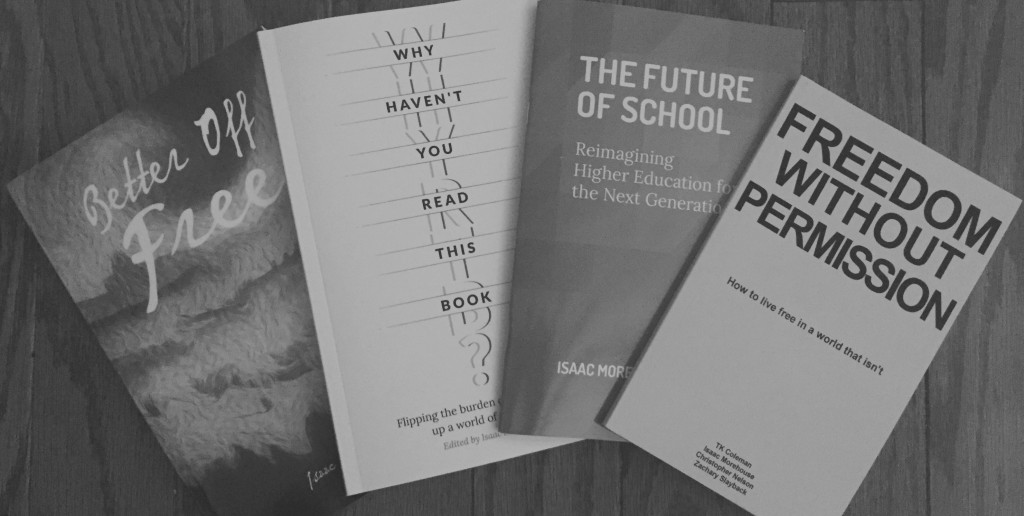 How many people know a mother of nine with a tenth in the womb? I’m related to one. Don’t hold that against her. She’s got children between the ages 2 and 12, with one set of twins in there.
How many people know a mother of nine with a tenth in the womb? I’m related to one. Don’t hold that against her. She’s got children between the ages 2 and 12, with one set of twins in there.
IMM: I guess the obvious question to ask a mother of (nearly) ten is, why? Are you trying to field a baseball team?
HH: No, I hate sports. I love children and so does John and we always wanted a large family. We (obviously) have left our family planning to God!
IMM: Did the experience of growing up with such an angelic and genius younger brother cause you to desire tons of kids?
HH: Quite the contrary…it really made me doubt the wisdom of humanity propagating. I’m always fearful of my children displaying ‘Isaac-like’ behaviors.
IMM: Do you ever worry that each individual child won’t get enough attention with so many in the house? How to you try to remedy that?
HH: It’s definitely something both John and I contemplate and my full thoughts on the issue would take up more time than your readers would want to give. However, ways in which we try to combat it are by taking the older children to a special store they like, such as a bookstore, or taking the younger ones to the play-land at the mall. It can also be something as simple as one of us playing board-games with them once the smaller ones are in bed.
IMM: Are people generally kind and happy for you when they see you with all your kids, or do you get dirty looks? What’s the most surprising comment you’ve gotten?
HH: It’s interesting, but we’ve found in the south that people seem the least accepting of our large brood. This manifests itself by complete disinterest/ignoring of us. I’m not sure why this is, but we were approached/asked questions a lot more whilst living in the midwest. Once a lady at a store basically forced me to take a twenty dollar bill from her, to buy something for the family and another time an individual asked John how much money he made!
IMM: OK, you’re a homeschooling mom with a massive family. The picture most people have in their mind is of a giant farmhouse and a bunch of kids churning butter, wearing bowties, and giving each other violin lessons. Does that describe your home life?
HH: Nothing you listed describes us…except the bowties, which we don religiously. I think most people would be surprised to see that we live in a neighborhood, have a relatively small yard and our house is decorated really well!
IMM: Hardest and most rewarding parts of having such a big family?
HH: My pregnancies are definitely the hardest part for our family to endure; I wish I felt well and enjoyed them, but it is the exact opposite. It’s a sacrifice for all of us to endure eight months of me feeling sickly. And the weight…ugh! I look like Martin Short’s character, ‘Glick’ for my last two or three months. It’s hard to pinpoint what is the most rewarding aspect, but one would definitely be watching the kids interact with each other and how much they enjoy it…when they’re not arguing, of course!
IMM: Do you ever feel constrained by the fact that you are primarily defined by the size of your family? Do you feel held back from going after other things you want in life?
HH: Not especially; I feel I have plenty of other interests, etc. that define me. There are definitely times where I feel held back from pursuing other things I enjoy, but on the whole I feel that motherhood has propelled me to be more creative, organized and good with managing my time.
IMM: How long does it take you to get everyone ready and out of the house?
HH: You’ll find out in a few weeks, when you and your lovely bride come to watch them! If we are talking Sunday morning, it’s about an hour-and-a-half to two hours from awakening to pulling out of the driveway. If it’s a normal day where we are just getting in the car to run an errand, it’s actually fairly quick, maybe 10-20 minutes.
IMM: How many loaves of bread do you go through in a week?
HH: Nine. I really have to keep my eyes out for good prices on bread, because we don’t care for Wonderbread and the like…though I’m not trying to besmirch their fine name. Buy-one-get-one deals are the best!
IMM: Do your kids seem to like being in a big family? Do any of them ever complain about it?
HH: Well, judging from the strained looks on several of their faces in the accompanying picture, I think it may be a hardship for them! They all really like it; they generally start praying for a new baby shortly after I have given birth! I encourage them to delay that prayer for awhile, so I have some time to recover and enjoy feeling well. In conversation you will hear them say, “They only have five children in their family”!
IMM: How many kids do you plan on having?
HH: As I said earlier, we leave family planning to God. But I hate vague answers such as that; my feeling is we will end up somewhere around sixteen.
IMM: Do you recommend having a big family to others? Are there some people you think would be better with a small family, or do you think it can work for anyone willing to try?
HH: I do think having a big family is extremely rewarding and I try to be encouraging to people about it, while still being real. I think most people would benefit from having a large (or larger) family, but the reality is you have to be extremely dedicated with your time, resources and emotional energy. People very rarely say they regret having another child, but more often regret not having had more.
IMM: If you could go back to just before you started having kids and give yourself one piece of advice, what would you say?
HH: This is a tough one, but I think it would have to be ‘Everything is a phase that will end, but will move into another phase’. I know that wasn’t very sage; I wish I could say something that made me look smarter and others would consider hanging on their fridge.
IMM: In the midst of raising and homeschooling all these kids, you’ve launched a business. What was the inspiration? Can you tell me about it?
HH: My business is called Bliss and Brahm and it is a clothing line specifically for twins which will carry coordinating items for boy/girl multiples. It is in the very rudimentary stages, but is really exciting in the sense that I am doing this from start-to-finish, from helping to design the sketches for the pieces to getting them shipped out to the buyers. My inspiration came eight years ago when I was searching for matching outfits for my own boy/girl twins and could not easily find items. The name came from my twins’ middle names!
IMM: Do you have a website or Facebook page? When will products be available?
HH: I do have a Facebook page called Bliss and Brahm. I wish I had an incentive to offer your readers to ‘like’ my page, but I’m going to count on the fact that you have been pounding into them the positives of free-market and entrepreneurial business ventures and hope that will compel them! My website is slated to be up in early July and we are actually launching our first line of clothing in March of 2014. I realize that seems a long way off, but the world of fashion runs on its own timeline. In the meantime, my website will allow browsers to see our progress and weigh in with their own thoughts and ideas.
IMM: Thank you!
Like this:
Like Loading...





